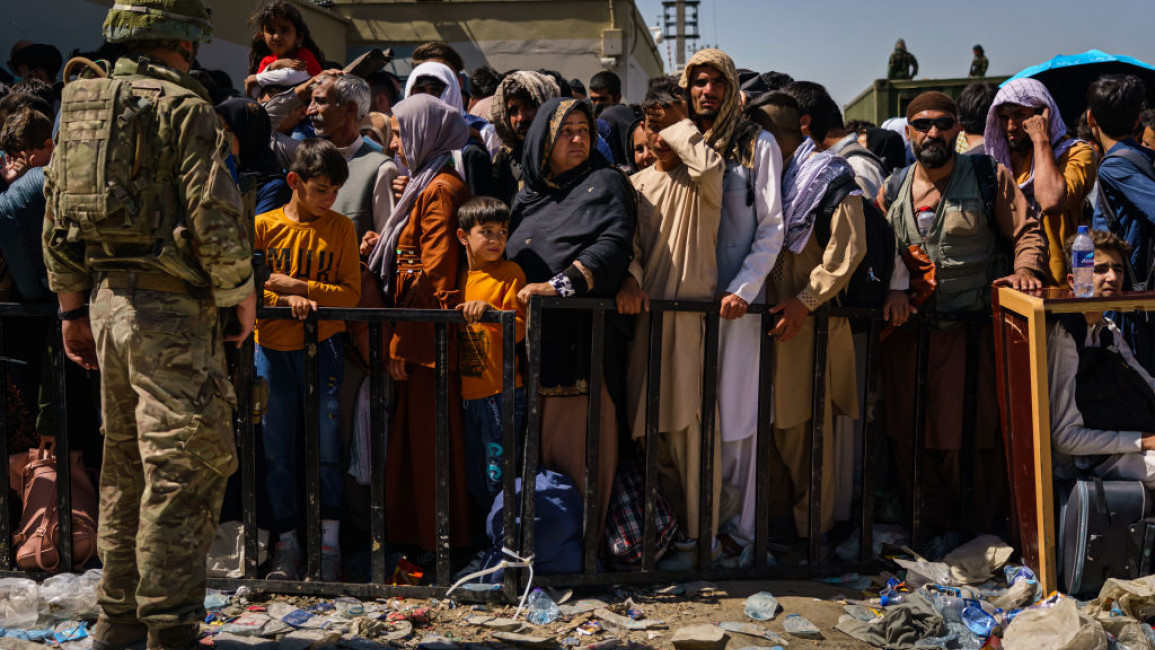The Taliban on Sunday told the West to look past the measures they have imposed on Afghan women and girls for the sake of improving foreign relations.
Their chief spokesman, Zabihullah Mujahid, said the Taliban uphold certain religious and cultural values and public aspirations that “must be acknowledged” to facilitate progressive bilateral relations rather than encountering disputes and stagnation.
Mujahid demanded on the opening day of a United Nations-led meeting in Qatar to increase engagement with Afghanistan and to have a more coordinated response to the country’s issues.
It’s the third such UN-sponsored gathering in Doha. The Taliban were not invited to the first meeting, and UN Secretary-General Antonio Guterres said they set unacceptable conditions for attending the second one in February, including demands that Afghan civil society members be excluded from the talks and that the Taliban be treated as the country’s legitimate rulers.
Afghan women have been excluded from the current Doha meeting.
No country officially recognises the Taliban, and the UN has said that recognition remains almost impossible while bans on female education and employment remain.
But Mujahid struck a defiant note Sunday, saying that the political understanding between the Taliban and other nations steadily improved.
RELATED
‘They think we’re their enemies’: The Taliban’s war on women
In-depth
Modaser Islami
He said Kazakhstan had removed the Taliban from its list of prohibited groups and that Russia would undertake a similar measure in the near future. Mujahid, who is meeting special envoys on the sidelines, said earlier that Saudi Arabia expressed its intention to reopen its embassy in Kabul.
The relationships with regional countries demonstrated that the Taliban have the commitment and capacity to establish and maintain relations, Mujahid said in his remarks.
“I do not deny that some countries may have problems with some measures of the Islamic Emirate,” Mujahid said in his speech.
“I think that policy differences amid states are natural, and experienced diplomats must find ways of interaction and understanding rather than confrontation.”
Such differences should not escalate to the extent that powerful countries used their leverage to impose security, political, and economic pressures that affected Afghanistan in a significant way. He did not mention the harsh edicts on women and girls that have caused global outrage but has previously referred to them as an “internal matter.”
The Taliban have rejected criticism of their treatment of Afghan women and girls, calling it interference.
“Consequently, other nations, particularly Western countries, can remove the obstacles hindering the development of relations with the Afghan government,” said Mujahid.
The decision to exclude Afghan women from the meeting has drawn rebukes from rights groups, the UN special rapporteur on human rights in Afghanistan, Richard Bennett, and Nobel laureate Malala Yousufzai.
Yousufzai, who was shot by a Taliban gunman for campaigning for girls’ education, wrote on social media platform X last Thursday that she spoke to UN Secretary-General Antonio Guterres about the Doha meeting.
She said she was “alarmed and disappointed” that the Taliban were invited to meet UN special envoys while Afghan women and rights defenders were excluded from the main conversation.
Convening the meeting without Afghan women sent “all the wrong” signals that the world was willing to accommodate the Taliban’s demands.
She added that what the Taliban were doing in Afghanistan amounted to gender apartheid.
Earlier, the United Nations’ top official in Afghanistan, Roza Otunbayeva, defended the failure to include Afghan women in the meeting in Doha, insisting that demands for women’s rights are certain to be raised.


